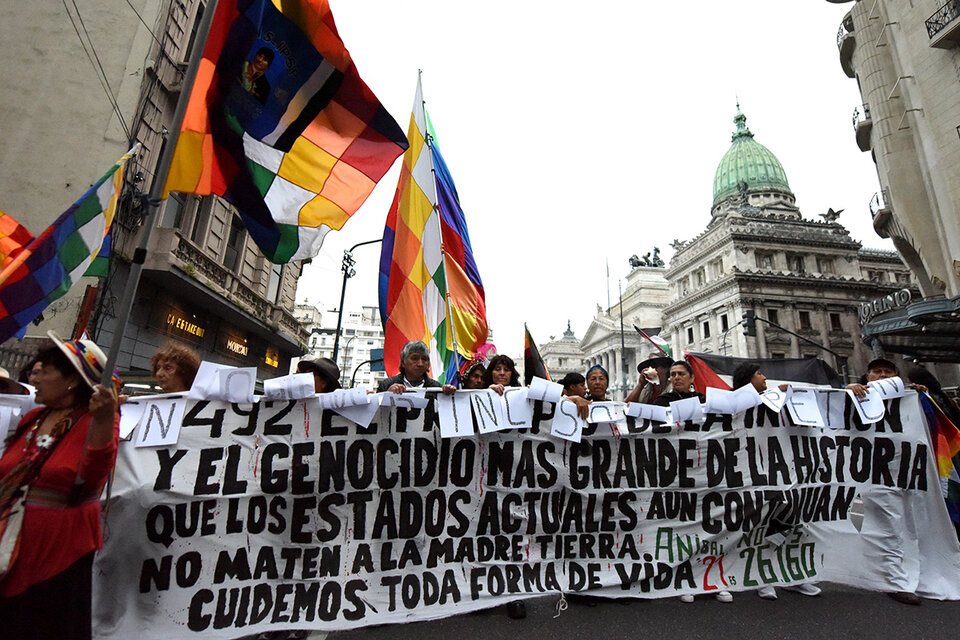The government is moving to repeal the Indigenous territorial emergency law that halts evictions while it promotes bills on Indigenous consultation and communal property that require communities to obtain legal personhood to have their rights recognized. Simultaneously, it dismantles the registry that grants such status and enacts the Large investment Incentive Regime, accelerating extractivism in Indigenous territories. This triad is merciless: financial capital, territorial (de)regulation, and the suspension of legal personhood as a tool of control. What is striking is not its intent but the method: the relentless speed of its cruelty.
“There’s no reprieve, man.” “Every day brings worse news,” read messages in WhatsApp groups connecting Indigenous and pro-Indigenous activists. The government has repealed Resolution 4811/96, which regulated the National Registry of Indigenous Communities—a key administrative tool for registering the legal personhood of Indigenous communities. This registry is a right, not an obligation, given the constitutional recognition of the preexistence of Indigenous Peoples. The repeal also halts all pending community applications and “invites” provincial jurisdictions to establish agreements to unify (standardize) registration criteria. By doing so, the national government effectively abdicates its legal responsibilities by ceasing to register communities entirely.
A few days later, a draft decree signed by the head of the Advisory Cabinet Unit of the Ministry of Security was leaked. The decree proposes repealing the state of emergency regarding the possession and ownership of lands traditionally occupied by the country’s Indigenous communities. This measure impacts Law 26.160, enacted in 2006, which suspends the enforcement of judgments, procedural actions, or administrative acts aimed at evicting or removing Indigenous peoples from their lands. The law has been extended three times and was renewed once again in 2021 by Alberto Fernández through a decree in the face of the imminent expiration of the law caused by a lack of parliamentary agreement. This decree remains in effect until November 2025, but the Milei administration has already drafted its bureaucratic demise.
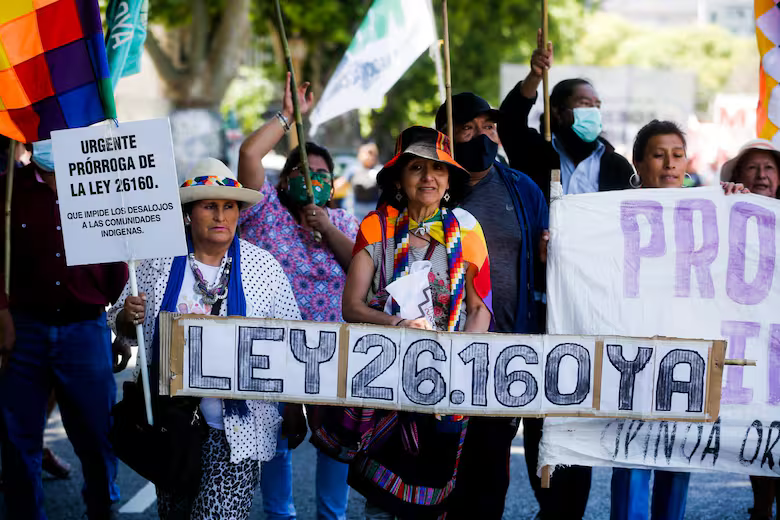
The Defense of the Sacred
Just two days after the trial concluded, the reasoning (justification) behind the conviction of the members of the Lof Lafken Winkul Mapu community was announced. The case concerns events that took place in November 2017, during the community’s effort to reclaim ancestral lands under the control of the National Parks Administration. They were sentenced to two years in prison for the crime of “usurpation by dispossession,” as authorities claimed the community obstructed access to the land for security forces and the National Parks Administration. These events are tied to the killing of young Mapuche activist Rafael Nahuel, who was shot in the back by the Coast Guard. He was 22 years old. Yet, there is always a deeper context.
After a process of spiritual strengthening and the re-establishment of the rewe—a ceremonial and sacred site for the Mapuche people—the members of the Lafken Winkul Mapu community made the decision to reclaim their territory. This was driven by a reason that precedes all of us, including themselves: one of their members was chosen by the ancestors to serve as a spiritual authority.
“I did not choose this role; it was revealed to me by another machi before I was born. From my mother’s womb, this role was assigned to me. When the appointed time came, I began to prepare for it. It is a machi spirit that I cannot deny or disregard. The connection to this place existed long before the legal proceedings began,” explains Betiana Colhuan from the military barracks repurposed as a courtroom.
The machi is a key political and spiritual authority of the Mapuche people. Their role is to ensure the physical and spiritual well-being of the community and its members and to protect the land, which requires maintaining a connection with the non-human entities that safeguard it. The Winkul community initiated the process of reclaiming ancestral lands under the control of the National Parks Administration because the rewe, their sacred ceremonial site needed to be established there. These lands are the subject of disputes involving various actors: governments, the Catholic diocese, local business interests, and real estate developers. It was the newenes—the spiritual forces—that pointed to this location.
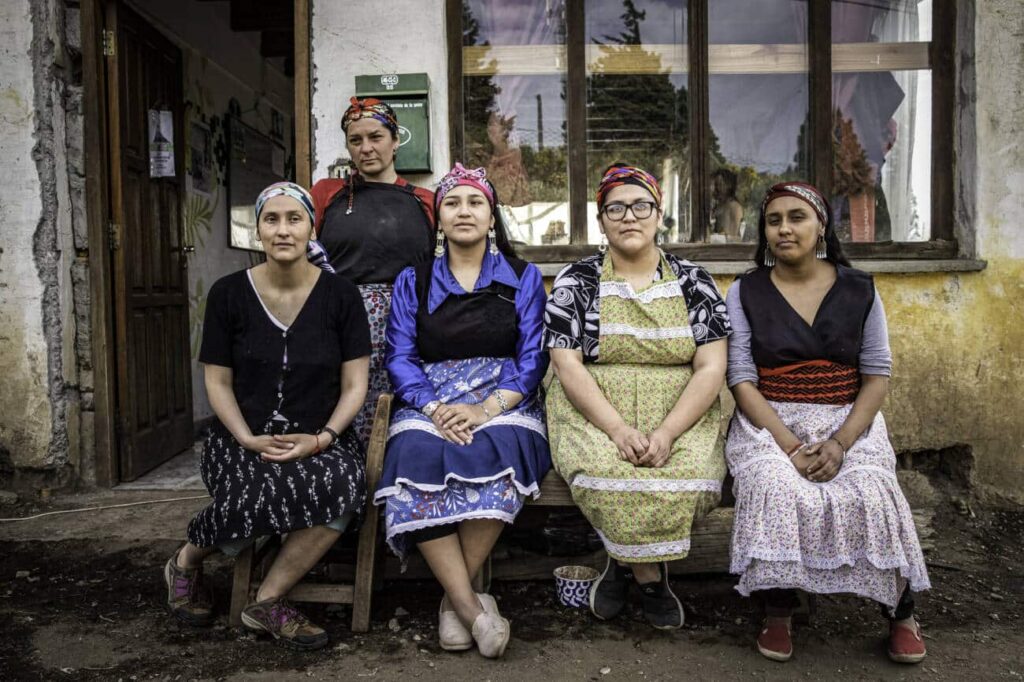
Bills That Undermine Rights
In the National Congress, two bills on Indigenous Community Property (ICP) are currently under consideration. The first, Bill 2390-D-2024, was introduced by Congresswoman Roxana Monzón from the Unión por la Patria party; the second, Bill 0331-D-2024, was proposed by Congressman Gerardo Milman from the Republican Proposal (PRO) party. Despite their opposing ideologies, histories, and traditions, both parties share an apparent urgency to regulate Indigenous Peoples’ access to land.
Monzón’s bill addresses rights already recognized in the existing legal framework but fails to advance solutions or provide legal security for the historical issues faced by Indigenous Peoples and communities. These issues include real estate pressures, the exploitation of natural resources, land dispossession, and arbitrary evictions. The bill does not adequately recognize the broader concept of territory, excluding its full scope and characteristics, such as airspace, subsoil, and the management of natural resources. Additionally, it restricts the recognition of Indigenous Community Property to the registration of the community’s legal status, even though the legal framework stipulates that such status is declarative rather than constitutive. The bill also fails to address methods for acquiring ICP and remains silent on sacred sites and places of worship.
While Milman’s bill incorporates the concept of territory in line with international standards, it includes problematic provisions regarding land access for Indigenous Peoples. Article 15 grants the Executive Branch the authority to request judicial evictions of communities in cases where their legal status is dissolved or canceled. Similarly, Article 14 states: “A member of a community granted land who abandons it shall not be entitled to claim any rights over the community property.” This provision fails to account for the realities in Indigenous territories, where forced migrations often occur due to the expansion of productive frontiers, large-scale extractive projects, and conditions of poverty and violence. Furthermore, it contradicts international standards, which affirm that territorial rights do not expire as long as a spiritual connection to the land persists (as established in the Inter-American Court of Human Rights ruling in Yakye Axa v. Paraguay).
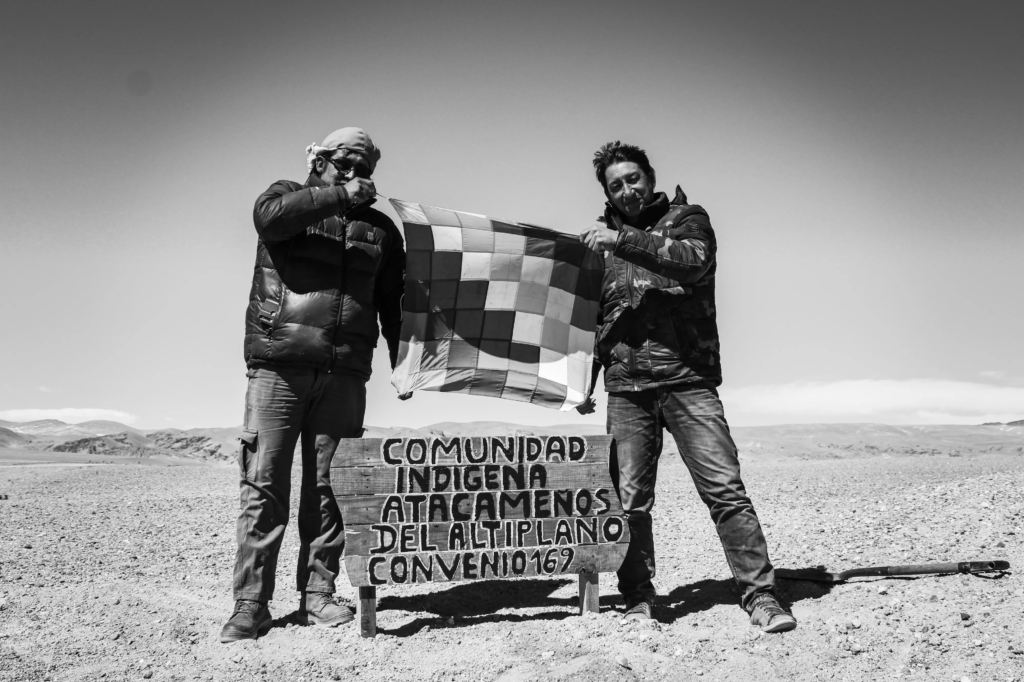
A Lock on the Recognition and Exercise of Rights
On October 28, 2024, the government of Río Negro province introduced a bill that quickly became law: “Procedure for convening the Prior, Free, and Informed Consultation for Indigenous Communities within the Area of Influence that have Legal Status recognized by the Provincial Authority.” This is a consultation protocol (without consultation) that sets a 40-day deadline, contradicting current international standards which mandate that processes must be culturally appropriate and respect the timeframes, institutions, and governance structures of the communities involved.
Furthermore, Orlando Carriqueo, Werken of the Coordinadora del Parlamento Mapuche-Tehuelche of Río Negro, explains that only 40% of the communities in the province have legal status. This is a critical point when analyzing the legislative projects on ICP and consultation, which require legal status to recognize collective rights of Indigenous Peoples and communities. By eliminating the registration requirement, the government creates an institutional barrier to the recognition and exercise of rights. This is not only unconstitutional but also profoundly incompatible with international standards.
According to the protocol, the decisions made during the consultation process will not be binding and will be based on a sworn Declaration of Good Practices that the project holder must submit. Therefore, the entire consultation process will rely on this declaration, which must include the minimum required information and documentation. “This project is flawed from the beginning because it is a unilateral decision without intercultural dialogue. The governor wrote it together with some mining companies to promote the extractive industry and undermine community and collective rights. We made two submissions pointing out that it is clearly unconstitutional,” explains the werken of the Mapuche-Tehuelche Parliament.
The ICP bills, the consultation protocol, and the repeal of the Indigenous territorial emergency law that suspends evictions are all being developed in a context where the government successfully passed the Large Investment Incentive Regime (RIGI) into law. This law provides significant tax benefits to companies in an effort to encourage investment in the country. It guarantees exchange rate, financial, and customs stability for 30 years, as well as exempts companies from having to repatriate profits after four years. Experts warn of the medium-term impact on the industrial production model, of turning Argentina into a mere exporter of raw materials, most of which are located in Indigenous territories.
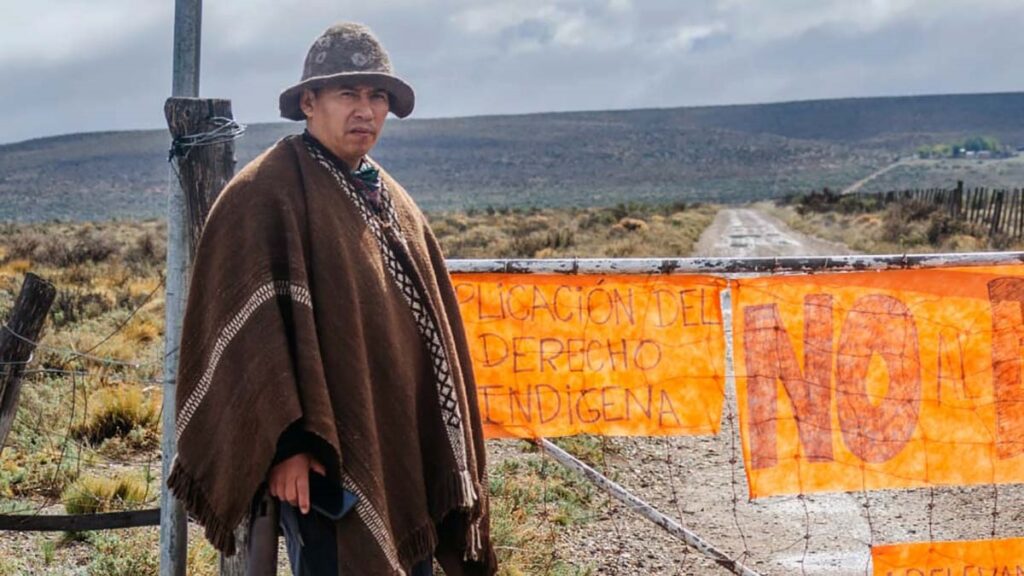
In the Face of the Offensive: Organization, Boldness, and Time
On November 11, Argentina was the only country at the UN to vote against a resolution on the rights of Indigenous Peoples. Based on the principles of the 2030 Agenda, several countries proposed a resolution recognizing the urgent need for Indigenous Peoples to participate in the development, peace, security, and justice agendas. The document stresses the importance of strengthening the protection and promotion of human rights for Indigenous peoples, as well as the obligation for businesses to respect these rights based on the principle of corporate social and environmental responsibility. When questioned about the negative vote, Milei explained that his government opposes any affirmative action that goes against national freedom and sovereignty.
In response, the organized Indigenous movement issued a statement titled “A vote against it does not erase our preexistence or our rights,” in which they denounce a state policy of “erasure and annihilation” of Indigenous Peoples in Argentina. They highlight that the negative vote does not exempt the country from respecting and fulfilling each of the international commitments it has ratified and which create binding international obligations.
The human rights violations in this report occurred between September and November 2024. In present-day Argentina, we live in a constant state of alert, where uncontrolled fires occur every day. Urgency becomes a structuring force. The immediate shapes organizational processes and personal lives, creating an atmosphere of dizziness, frustration, hopelessness, and constant confusion. A particular way of relating to the present—and thus to the past and the future—is imposed from above. The government’s economic plan aims to ideologically and politically neutralize resistance by breaking the epistemic framework of a genealogical and processual view of history, as well as any possibility of imagining and building an emancipatory horizon.
What is new is not the policy of plunder and accumulation through dispossession driven by the institutional power apparatus. The Argentine state’s framework has always been genocidal, colonialist, racist, and capitalist. The novelty lies in the relentless advance of contempt from all possible fronts, obstructing and weakening the space for resistance. A typical war strategy dressed in legality. To this day, the Winkul community continues its resistance to the reclaimed territory. There is no time for urgency. Past, present, and future occur simultaneously. Tomorrow, we expect another fire. Yet, there are sparks that light the way.

Alexia Campos is a lawyer and holds a Master's degree in Social Anthropology (CIESAS). She is also an activist and human rights defender.
